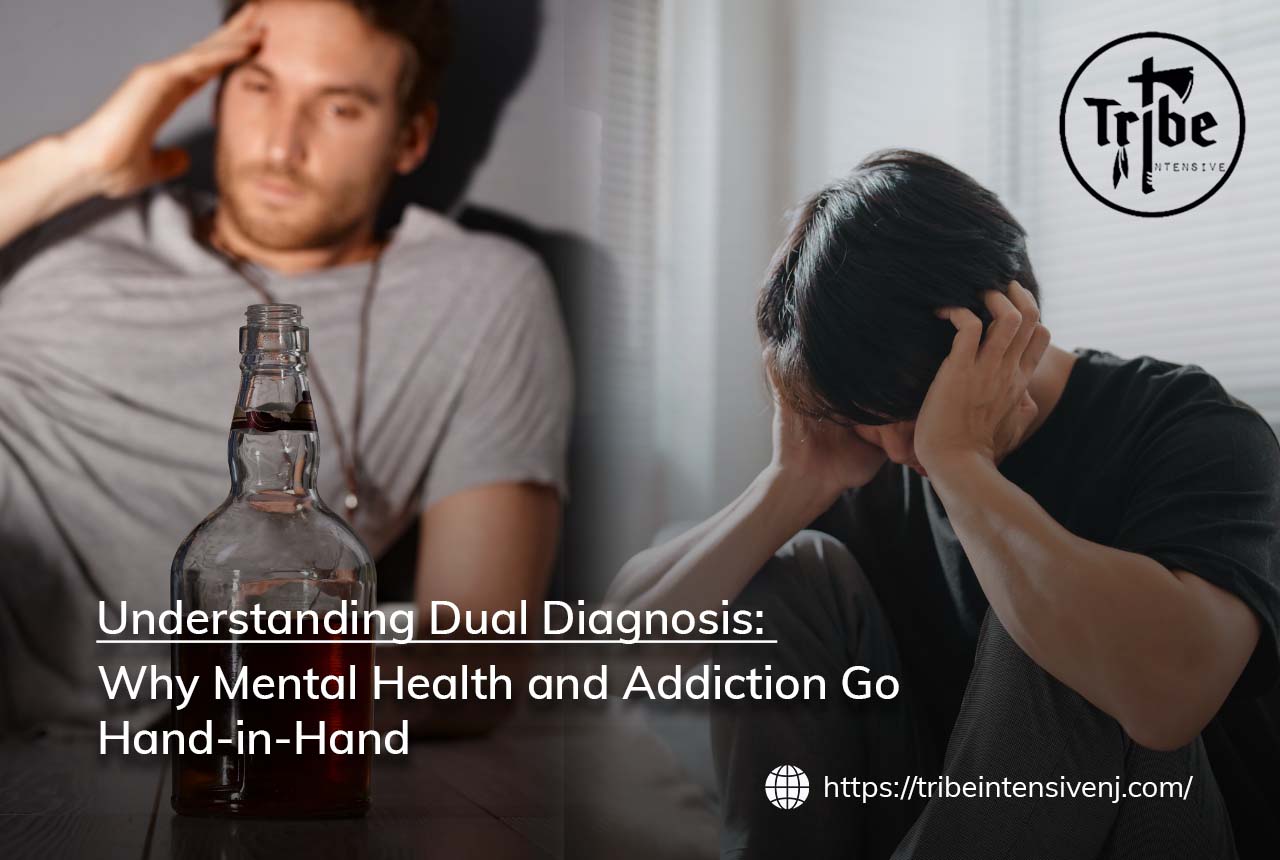Introduction
Mental health and addiction are often interconnected, forming what experts refer to as a dual diagnosis or co-occurring disorders. This condition occurs when an individual struggles with both a mental health disorder and substance abuse simultaneously. Addressing one without the other can lead to ineffective treatment, as both issues are deeply intertwined. Understanding the relationship between mental health and addiction is crucial for individuals, families, and healthcare providers to create effective treatment plans and support systems.
The Link Between Mental Health and Addiction
Mental health disorders such as depression, anxiety, bipolar disorder, schizophrenia, and post-traumatic stress disorder (PTSD) often contribute to substance abuse. Many individuals turn to drugs or alcohol as a form of self-medication, attempting to alleviate symptoms like sadness, fear, or emotional distress. Unfortunately, this temporary relief often leads to a cycle of dependency, worsening both conditions over time.
On the other hand, substance abuse can also trigger or exacerbate mental health disorders. Prolonged drug or alcohol use can alter brain chemistry, leading to mood swings, paranoia, and severe depression. This creates a vicious cycle where addiction fuels mental health issues, and mental health struggles drive further substance use.
Common Mental Health Disorders Associated with Addiction
Certain mental health conditions have a higher likelihood of co-occurring with substance use disorders, including:
- Depression – Individuals suffering from depression may use alcohol or drugs to numb their emotional pain, but these substances often intensify depressive symptoms over time.
- Anxiety Disorders – Many people with anxiety disorders misuse sedatives or alcohol to manage their symptoms, but these substances can lead to dependence and heightened anxiety levels.
- Bipolar Disorder – Those with bipolar disorder may use stimulants or alcohol to regulate mood swings, often leading to addiction.
- Schizophrenia – Individuals with schizophrenia may turn to drugs to cope with hallucinations or delusions, but substance use can worsen psychotic episodes.
- PTSD – People with PTSD may use drugs or alcohol to suppress traumatic memories, increasing their risk of addiction.
Challenges in Treating Dual Diagnosis
Treating dual diagnosis is complex because both conditions influence each other. Some of the major challenges include:
- Delayed Diagnosis: Many individuals receive treatment for either addiction or a mental health disorder, but not both. This can lead to incomplete recovery and frequent relapses.
- Stigma and Misunderstanding: Mental health and addiction carry significant societal stigma, making individuals hesitant to seek help.
- Medication Interactions: Some psychiatric medications may not be compatible with addiction recovery medications, requiring careful management by healthcare professionals.
- Relapse Risk: Without addressing the underlying mental health issue, individuals may relapse even after completing a substance abuse treatment program.
Effective Treatment Approaches
Integrated treatment is considered the most effective approach for individuals with a dual diagnosis. This means addressing both mental health and addiction simultaneously through:
- Comprehensive Assessment – Healthcare providers should conduct a thorough evaluation to diagnose both disorders accurately.
- Medication-Assisted Treatment (MAT) – Medications can help manage withdrawal symptoms and mental health disorders effectively.
- Cognitive Behavioral Therapy (CBT) – CBT helps individuals develop coping strategies to manage both mental health symptoms and addiction triggers.
- Support Groups – Groups such as Alcoholics Anonymous (AA), Narcotics Anonymous (NA), and mental health peer support groups provide a sense of community and accountability.
- Holistic Approaches – Practices like yoga, meditation, and art therapy can help manage stress and promote emotional well-being.
The Importance of Support Systems
Family, friends, and support networks play a crucial role in recovery. Loved ones should educate themselves about dual diagnosis to provide the right kind of support. Encouraging open communication, attending therapy sessions together, and avoiding enabling behaviors can make a significant difference in an individual’s recovery journey.
Dual diagnosis is a complex but treatable condition that requires an integrated approach to recovery. By addressing both mental health and substance use disorders together, individuals have a greater chance of achieving long-term sobriety and emotional stability. Seeking professional help, using a combination of medical and therapeutic interventions, and having a strong support system are key components to overcoming dual diagnosis. If you or someone you know is struggling with co-occurring disorders, reaching out for help is the first step toward a healthier, more fulfilling life.



